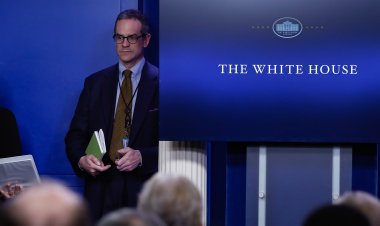‘They’re so vindictive’: Concerns Among Federal Employees Over Potential Trump 2.0
They are putting the finishing touches on Biden's priorities, updating their resumes, and postponing home repairs due to concerns about job security.

The fear among federal workers is palpable, particularly because Trump has promised to significantly reshape the federal workforce. His running mate, Ohio Republican Sen. JD Vance, has gone as far as to suggest that Trump should fire “every civil servant in the administrative state.” This rhetoric isn't merely campaign talk; during his first term, Trump attempted to make it easier to dismiss federal employees, a measure that the Biden administration swiftly repealed.
Specific agencies, especially those involved in environmental regulation, are bracing for potential attacks. Programs related to climate, clean energy, and conservation that were enhanced during the Biden administration are anticipated to become targets for Trump’s administration. Employees in these sectors are feeling the impact, as they rush to finalize Biden's initiatives before the election, all while fearing potential job loss.
Amid this uncertainty, one employee at the National Science Foundation shared, “It’s in the back of everybody’s mind that a Trump administration might purge the federal workforce.” Another Interior employee noted that while there was an initial sense of dread before Biden withdrew, the entry of Harris into the race provided a glimmer of hope for many, though uncertainty remains regarding her chances of victory.
Rep. Gerry Connolly, a Virginia Democrat, affirmed the validity of these fears, stating, “Federal employees are rightly concerned about what a second Trump presidency will mean for them and, by extension, for the American people they so dutifully serve.” He highlighted Trump’s history of critiquing federal employees and his plans to relocate or dismiss over 100,000 workers in the D.C. area.
The emphasis on “draining the swamp” has resonated with Trump’s allies, some of whom have been critical of civil servants during their tenure. For instance, former Interior Secretary David Bernhardt authored a book titled, “You Report to Me: Accountability for the Failing Administrative State,” expressing his dissatisfaction with the civil service. Similarly, Mandy Gunasekara, Trump’s former EPA chief of staff, released a book titled “Y'all Fired: A Southern Belle's Guide to Restoring Federalism and Draining the Swamp,” where she proposed relocating the EPA's headquarters.
Currently, employees are turning to Project 2025, a strategic guide by the Heritage Foundation that outlines possible changes to federal agencies. With substantial funding at stake, employees are working longer hours to complete their tasks before the end of the Biden administration. As Nicole Cantello, president of the American Federation of Government Employees' Local 704, noted, “We are seeing an increase as a union in overtime and comp time given out for people who are working more than 40 hours a week.”
As of now, employees are focused on addressing the urgent needs associated with the climate crisis. EPA spokesperson Nick Conger emphasized the agency’s commitment to meeting these challenges promptly, stating, “The climate crisis requires immediate action. Communities are suffering from pollution. EPA is focused on responding to these challenges with urgency.”
However, if Trump were to return, he has expressed intentions to halt climate spending and repeal unspent funds from Biden’s climate initiatives, which could further complicate the financial landscape for federal agencies. Despite the uncertainties, one long-serving EPA employee remarked, “Everybody’s just kind of focusing on the mission right now. We’ve still got a lot of work to do under this administration.”
James del Carmen contributed to this report for TROIB News
Find more stories on the environment and climate change on TROIB/Planet Health












